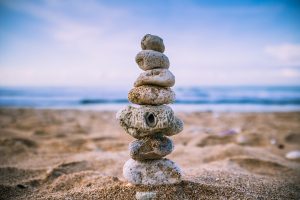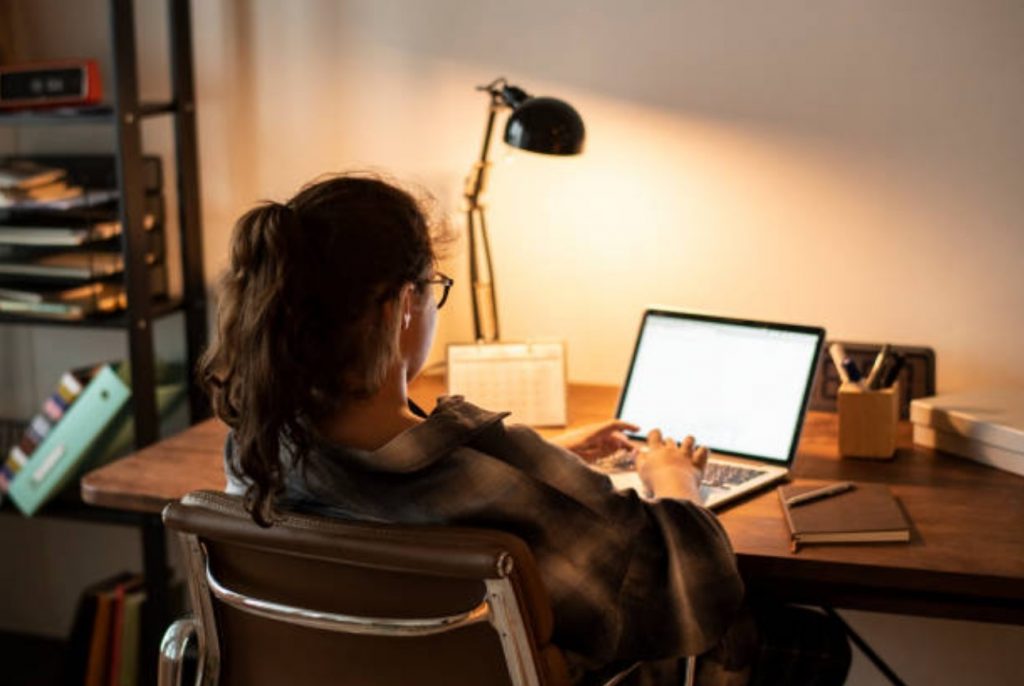By Azizan Anas (Student Blogger: BSc Hons Mathematics, Operational Research, Statistics and Economics)
 As the majority of the academic year is online-based due to the ongoing pandemic, and most of us are confined to a small, limited hybrid space of our personal rest area and workstation (we also call it our bedroom), we often overlook the outdoors. Watching pre-recorded lectures, attending workshops and tutorials and communicating with groupmates through an online platform can all be done from our room now. This can be both advantageous and harmful: a double-edged sword of a learning format.
As the majority of the academic year is online-based due to the ongoing pandemic, and most of us are confined to a small, limited hybrid space of our personal rest area and workstation (we also call it our bedroom), we often overlook the outdoors. Watching pre-recorded lectures, attending workshops and tutorials and communicating with groupmates through an online platform can all be done from our room now. This can be both advantageous and harmful: a double-edged sword of a learning format.
Ask yourself, when was the last time you went out to simply enjoy the outdoors or do physical activities, that was not because of groceries/commuting?
In full honesty, between March and December I barely did any exercise or went outdoors; most of my time was spent in my uni bedroom, watching lecture videos, attending seminars, doing coursework and attempting practice questions, as well as going to the communal kitchen to socialise with my flatmates. If I got too bored studying in my room, I would alternate the library or the shared kitchen for a change of scenery. Going outdoors or doing exercise, however, wasn’t a part of my routine.
One day, I saw an Instagram Story by the Malaysian Society about the 27 27 challenge, organised by the charity Mind. The challenge was to run 27 miles in 27 days during March 2021 while fundraising in solidarity with the 27% of students who report mental health issues while in university. It was a perfect opportunity for me to move on from my sedentary lifestyle. I was trapped in my room most of the time for the past 2 months simply because I didn’t find any incentive to go outside. It was too cold at that time since it was still the Winter season.
My coping mechanism to relieve stress has changed. From resorting to binge-watching Netflix while eating snacks as a form of unwinding from work – to now going for a short jog around campus. I feel much more satisfied and happier being able to take care of my physical wellbeing as well as my mental wellbeing while at the same time running for a good cause. There are plentiful benefits associated with going outdoors and doing physical activities such as improving your sleep pattern, improving your physical and mental wellbeing, reducing stress and so on.
The first step is always the hardest, but the following steps are easy to follow if you pass through the first obstacle. Exercise can lead to feelings of satisfaction, a sense of achievement, and being more cheerful. All that can be part of your day, you just need to take a step away from your room. All it takes is the willingness, and strength to go outdoors. What is important is to develop a sustainable habit that can help you to achieve this.
Go out and take a walk 15 minutes each day for a week; force yourself if you have to. The key to a successful sustaining habit is not to expect an immediate outcome but rather to see an improvement of at least 1% each time. It is no use to all of a sudden go for an extreme distance/time that you find too challenging, putting yourself off from doing it again. It is important to start slowly to make your desired habit of walking feasible, easy and satisfying. Depending on your progress at the end of the week, consider heightening the base mark to a higher level (at a moderate increase). In the end, you’ll be able to take going outdoors as a natural stress reliever full of benefits you will look forward to. You can reward yourself as well to keep you on track (an example is to get yourself a doughnut from Greggs if you walked at least 5 days a week!)
May is the National Walking Month in the UK. Take this as an opportunity to start and grow the habit of living an active way of life. To encourage people to cultivate this healthy lifestyle, Living Streets (the UK charity for walking) has a pledge on their website where they will share with you how many miles you will walk, how many calories you’ll burn and how much CO2 you will save depending on how many short walk you pledged for the week (A short walk is defined as a mile or 15-20 minutes of walking). I believe that by cultivating this habit of going outdoors and doing physical activities, we will be more prepared to take our summer exams much better, and more mentally prepared to engage.


 By James (Student blogger: BA Politics and International Relations)
By James (Student blogger: BA Politics and International Relations) By Sean (Student blogger: MSci Hons Computer Science)
By Sean (Student blogger: MSci Hons Computer Science)

